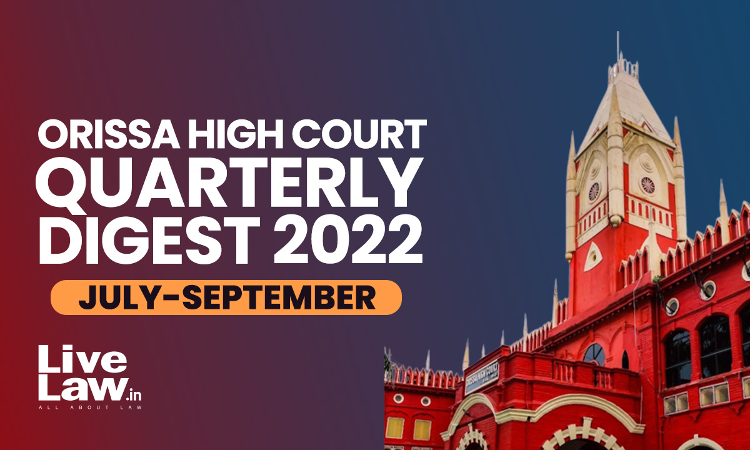Next Story
12 Nov 2022 5:11 PM IST
Nominal Index: 1. State of Odisha & Ors. v. Radhakanta Tripathy & Anr., 2022 LiveLaw (Ori) 109 2. Gobardhan Gadaba @ Gadava v. State of Odisha, 2022 LiveLaw (Ori) 110 3. Naba Krishna Mahapatra v. State of Odisha & Ors., 2022 LiveLaw (Ori) 111 4. Kishore Bira v. State of Odisha, 2022 LiveLaw (Ori) 112 5. M/s. Patel Brothers &...

